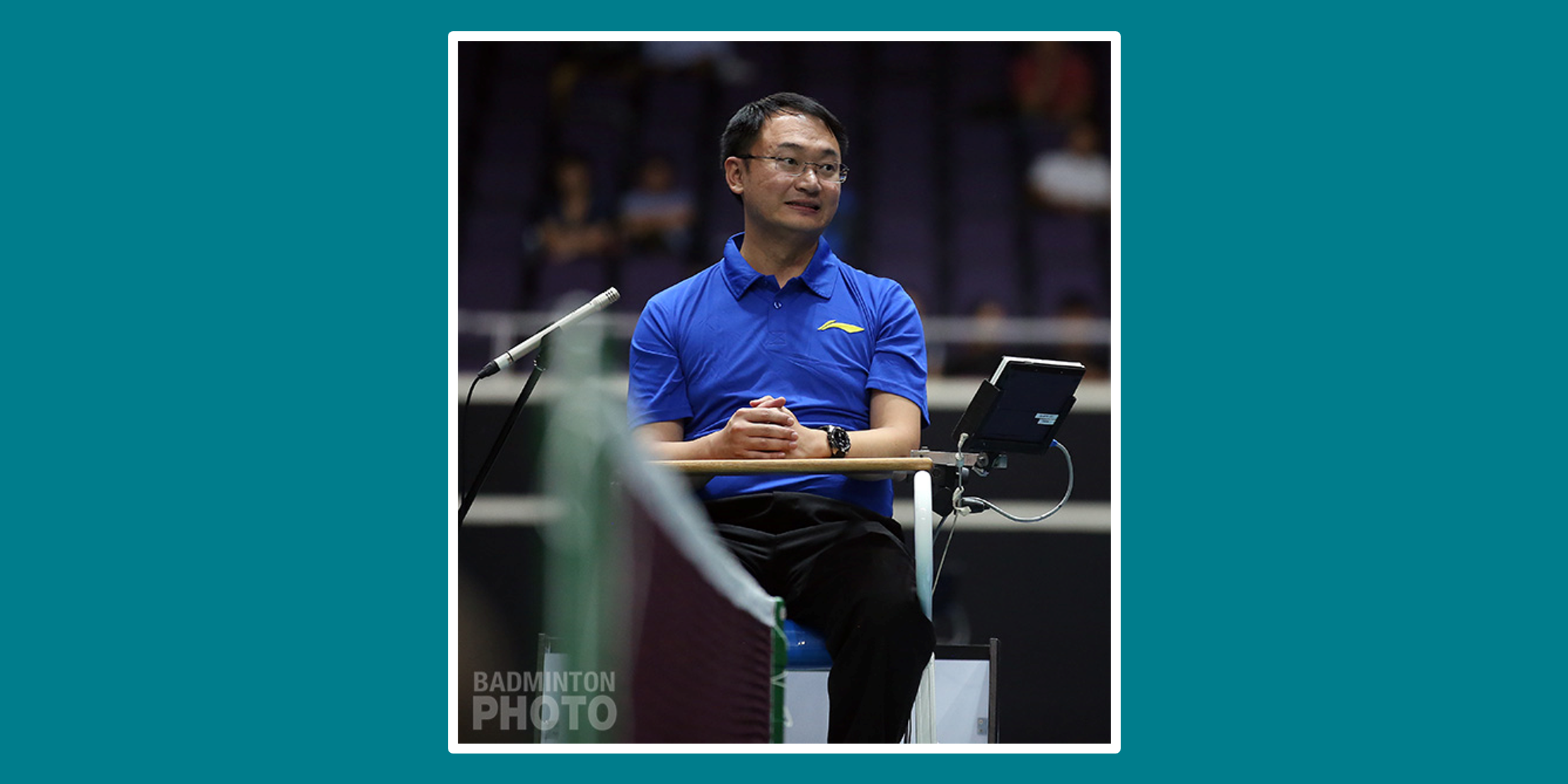Pictured: Justin Zuo, New Zealand, umpiring at the Singapore Open 2017. Photo Credit: Badminton Photo
“I am so glad that this Paralympic Games will be my retirement appointment. It’s not only a memorable event for me, but also an honorable recognition from Badminton Oceania”
Reflective and grateful words from the Oceania Certificated Umpire, Justin Zuo, who will be retiring from umpiring following a memorable 18 years officiating at some of world’s biggest tournaments.
We caught up with the New Zealand-based umpire to talk about his umpiring career and learn more about what he is most looking forward to in Tokyo:
What was your initial reaction after receiving a letter of position at the Tokyo 2020 Paralympic Games?
This is my first Paralympic Games, and also the first time badminton will ever be introduced to the Games. Therefore, I felt very excited and have been looking forward to it. In fact, I was overjoyed holding onto that appointment letter and have it read multiple times.
What are you most looking forward to when umpiring in Tokyo?
Before this pandemic, I was looking forward to a trip in Japan, tasting local famous food and of course being part of the Games. However, after this pandemic, especially a few experienced umpires also old friends of badminton family had sadly left us. I believe now the most looking forward is to encountering the vibrant culture of Japan and to meet with my friends umpiring the events there.
What experience do you have as an umpire?
A memorable experience of mine was when I umpired the World Junior Championship 2007 in Auckland – I was honored to umpire the match of Chen Long which was his first World Junior title. However the highest level of tournament I have umpired at is probably the Para Badminton World Championship 2019. The invincible spirit of para-athletes is amazing and incredible, I always highly impressed by their great passion in competing at court and their sportsmanship.
What has the journey looked like to prepare for the Paralympics? Have you had to undergo any major learnings for the new classifications?
Given the COVID-19 travel restrictions, I had to be fully vaccinated and book my MIQ facility before travelling to Japan, which is a unique situation compared to other events. We will have to have more COVID tests pre- and during the event too. Otherwise, Para badminton follows predominantly the standard rules of any official badminton event with a handful of exceptions. I took the opportunity to refresh myself with all the rules recommended by the BWF Umpire’s manual.
Sometimes conflicts occur between the player and the umpire. How do you personally cope with/solve these unexpected problems and reduce the tension in the moment?
Players and umpires are not enemies, all technical officials are to remember that the game is there for the players, players are the main characters of the game. As umpires we are there to serve the game with all the technical knowledge we were being trained for, so that players can compete on fair and equal terms, and to deliver their best performance accordingly. There is a guideline on the recommendation to ITTO, that as umpires, we have to be firm with upholding the rules, yet not being officious. If a player is in emotional distress as a result of a certain decision made by the umpire during the game, we would be happy to bring together the referee on court if it’s a dispute of law matters and seek objective opinions. Yet it is our responsibility to remind the players that we can only base our judgement on “to be seen to be done” principle and it is the courtesy we would appreciate from the players to observe whatever the outcome of this decision-making process.
Are there any interesting facts about umpiring that the ‘average joe’ might not know?
For the reason of neutrality, we cannot umpire matches which involve players that represent our own countries. But sometimes we could be doing service judge. Umpires cannot override a service judge’s decision, even some players don’t know and sometimes require an umpire to take action or overruling. We have our own signals, eye contacts and facial expression to communicate with each other during the game or interval, especially during a long rally more than 60 strokes then you may see the umpire and the service judge are quietly communicating by these secret signals and discreet facial expressions.
The Para badminton programme at the Tokyo 2020 Paralympic Games gets underway on Wednesday 1 September. Find out more about the schedule, where to watch and much more here.






